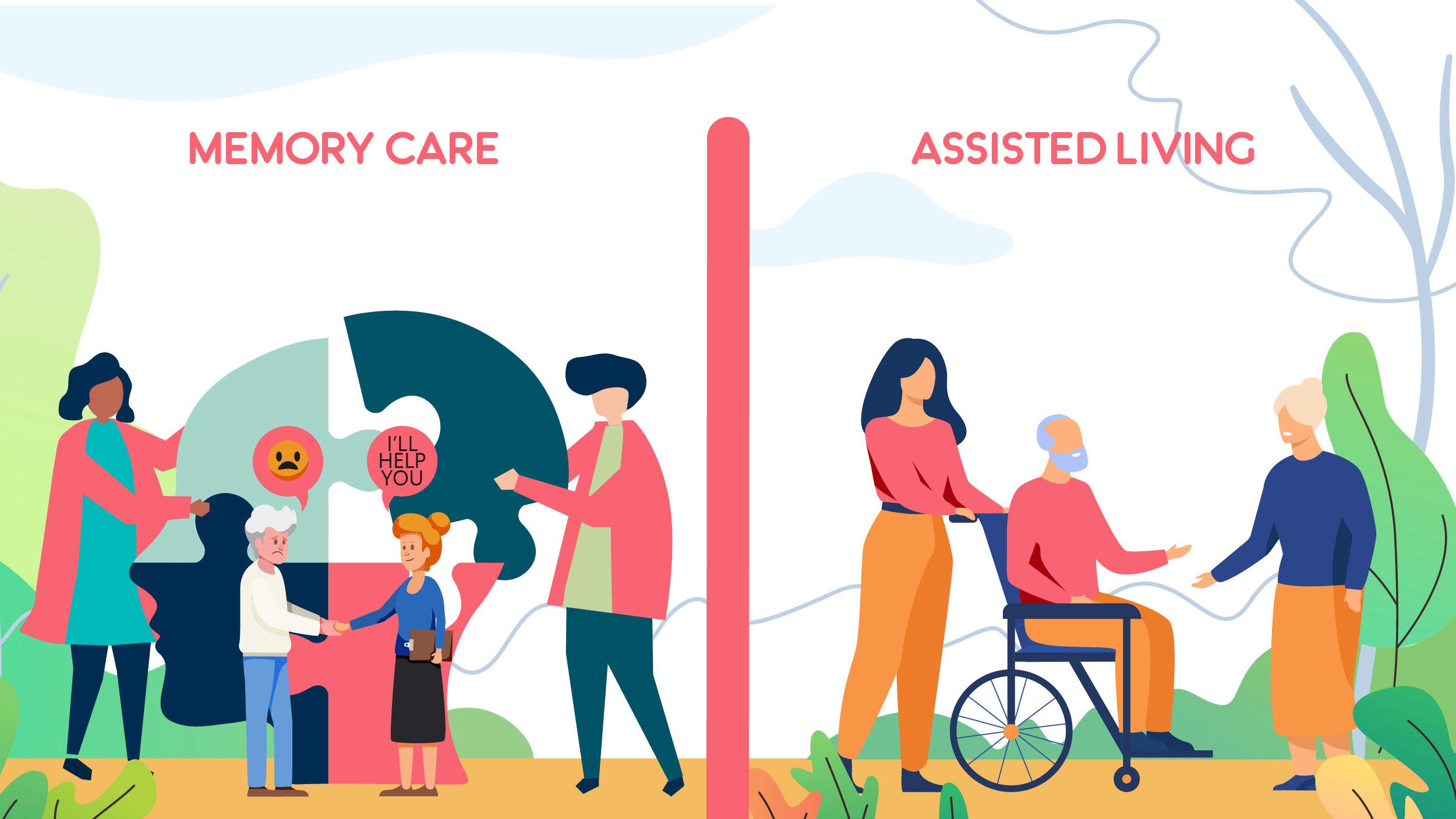Creating a Safe and Encouraging Setting for Alzheimer's Care
The production of a encouraging and risk-free environment for individuals with Alzheimer's is critical in improving their quality of life. Discovering these diverse approaches can disclose vital insights right into efficient caregiving techniques that may transform the daily experiences of both clients and caretakers.
Understanding Alzheimer's Requirements
Regularly, individuals with Alzheimer's condition display a series of needs that call for tailored methods to care. As the problem progresses, cognitive decline shows up in various methods, impacting memory, thinking, and even the capacity to perform everyday activities. Caretakers have to identify these evolving needs to supply appropriate assistance and ensure a higher quality of life for those affected.
One vital facet of comprehending Alzheimer's needs is identifying the relevance of routine and knowledge. People frequently discover convenience in well-known patterns, which can reduce anxiety and confusion. Caregivers need to strive to create structured day-to-day timetables that include purposeful tasks aligned with the person's passions and capabilities.
Furthermore, effective communication is paramount. People with Alzheimer's may have a hard time to express themselves or comprehend complex language. Caregivers must employ straightforward, clear language, use non-verbal hints, and method active paying attention to foster understanding and link.
Last but not least, psychological and social requirements can not be forgotten. Offering possibilities for social interaction and keeping connections can considerably boost psychological well-being. Caregivers need to urge engagement in community tasks or household gatherings, promoting a sense of belonging and function. Comprehending these varied requirements is important for developing a helpful care setting.
Creating a Safe Home
Producing a secure home for people with Alzheimer's condition is necessary to advertising and reducing risks self-reliance. Make certain that pathways are clear and well-lit, as proper illumination lowers disorientation and enhances wheelchair.
Including flexible attributes is additionally crucial. Mount grab bars in bathrooms and near stairs, and consider utilizing non-slip floor coverings in damp areas. Furthermore, utilizing contrasting colors for wall surfaces and floors can help in differentiating rooms, aiding to minimize confusion.
Familiarity is important for people with Alzheimer's. Customizing the environment with familiar things and pictures can strengthen a sense of belonging and safety - Alzheimers Care Charlotte. It is also beneficial to have a marked area for day-to-day activities, such as analysis or crafting, which can supply structure to their day
Finally, executing a protected outside space enables risk-free expedition while connecting with nature. By attentively creating the home environment, caregivers can dramatically enhance the lifestyle for people dealing with Alzheimer's condition.
Enhancing Interaction Abilities

Non-verbal communication, including facial expressions, gestures, and touch, plays an important duty in conveying empathy and understanding. Maintaining eye call and a tranquil behavior can boost the comfort degree of the individual, promoting a feeling of safety and security.
In addition, it is necessary to practice active listening. This involves being totally existing, showing persistence, and enabling the individual to share themselves without disturbance. Repetition may be needed; caregivers should be prepared to revisit questions or subjects, as people with Alzheimer's might struggle with memory recall.
In addition, using visual aids or signs, such as photographs or acquainted items, can facilitate recognition and interaction. Inevitably, enhancing communication abilities is about constructing trust fund and creating an atmosphere where people really feel listened to, valued, and understood, consequently enhancing their lifestyle.
Urging Social Communication
Promoting purposeful social interactions can substantially enhance the health of individuals with Alzheimer's condition. Engaging with others not only assists fight sensations of isolation but likewise boosts cognitive function and psychological health and wellness. Structured social tasks, such as group crafts, arts and video games, or music treatment, produce chances for citizens to get in touch with peers and caregivers, which can cause improved state of mind and reduced anxiety.
Creating a welcoming setting that urges socialization is important. This can be accomplished by setting up public rooms that promote communication, such as comfortable seating areas or activity spaces. In addition, integrating familiar and culturally appropriate tasks can stimulate memories and motivate engagement, allowing individuals with Alzheimer's to feel even more linked to their previous experiences.
Furthermore, caregivers must be trained to identify and promote social involvement among citizens. Basic gestures, such as initiating discussion or promoting tiny seminar, can assist people really feel valued and consisted of. Regularly scheduled social events must correspond yet flexible, suiting differing degrees of ability and rate of interest. By focusing on social interaction, we can substantially enrich the lives of those coping with Alzheimer's, promoting page a feeling of community and belonging.
Sustaining Caregiver Well-being

To sustain caregivers, companies ought to provide routine training and academic sources to enhance their understanding of Alzheimer's disease official statement and caregiving methods. Giving access to respite treatment services allows caregivers to take needed breaks, minimizing stress and anxiety and tiredness - Alzheimers Care Charlotte. Furthermore, fostering an area with assistance groups can facilitate psychological sharing and the exchange of practical advice among caretakers, creating a network of common assistance
Psychological health resources, such as counseling solutions, can likewise be essential in addressing the emotional toll caregiving can take. By prioritizing caregiver wellness, we create a more lasting caregiving environment that not just benefits the caretakers themselves but likewise boosts the overall quality of care gotten by individuals with Alzheimer's. Inevitably, sustaining caretakers is a crucial part in cultivating a thoughtful and efficient care setting.
Final Thought
To conclude, the creation of a helpful and safe atmosphere for people with Alzheimer's is important to boosting their lifestyle. By prioritizing safety through thoughtful layout, promoting emotional well-being with acquainted aspects, and advertising engagement through structured routines, caretakers can significantly influence the total experience of those affected by this condition. Sustaining caretaker wellness is critical, as it inevitably adds to a more reliable and thoughtful care setting.
Repetition might be essential; caregivers should be prepared to revisit inquiries or topics, as individuals with Alzheimer's may struggle with memory recall.

Comments on “Family-Oriented Facilities Offering Personalized Alzheimers Care Charlotte”